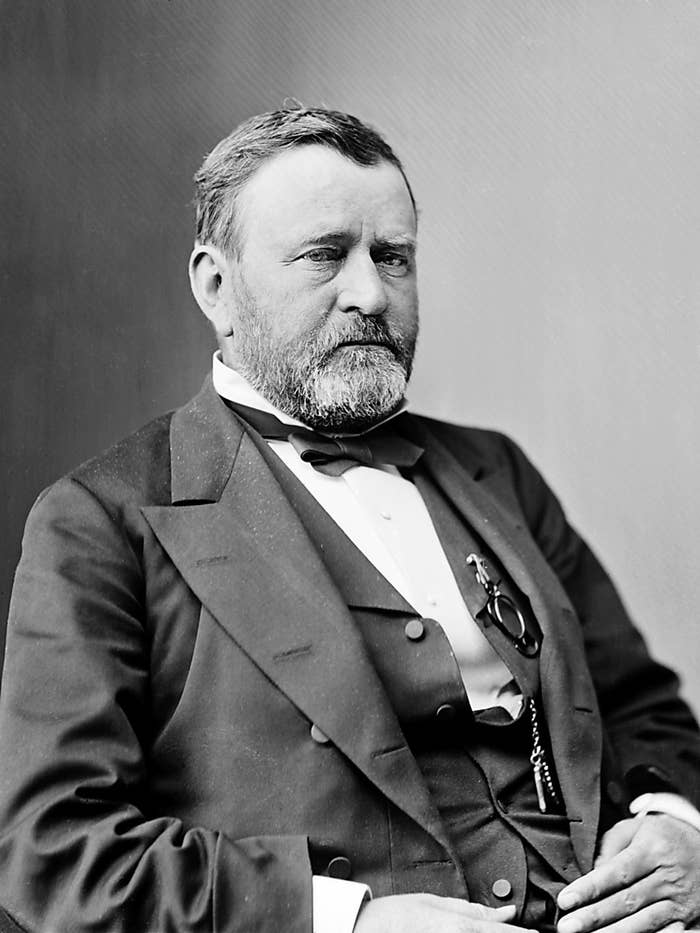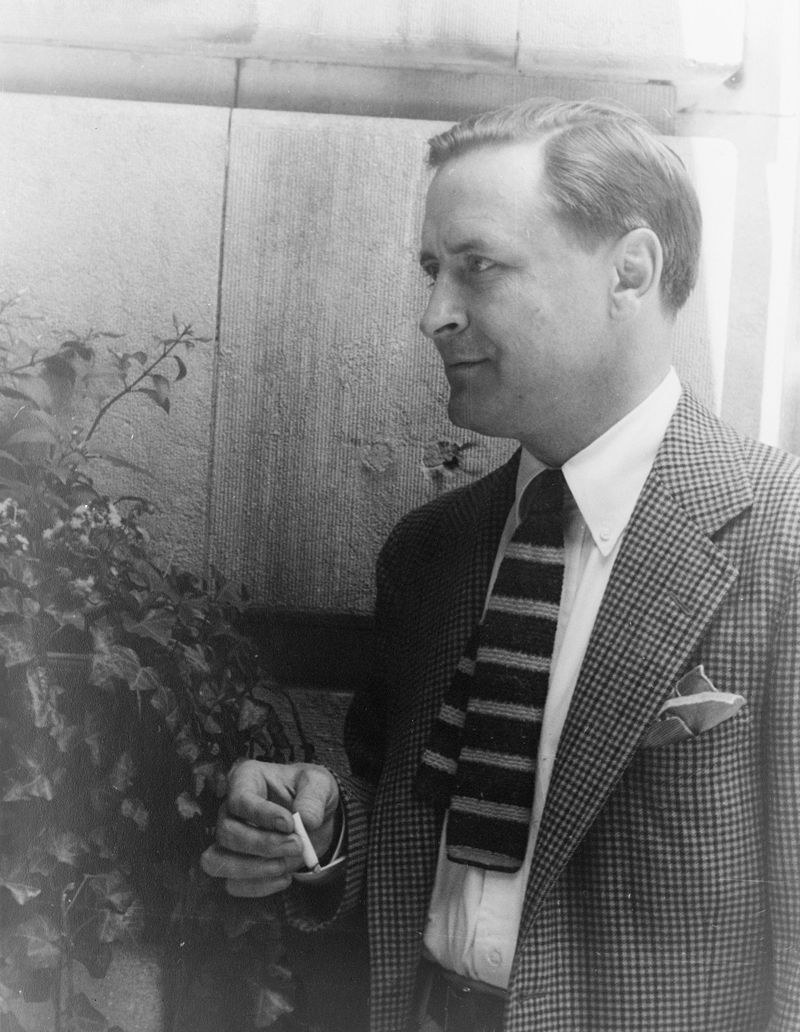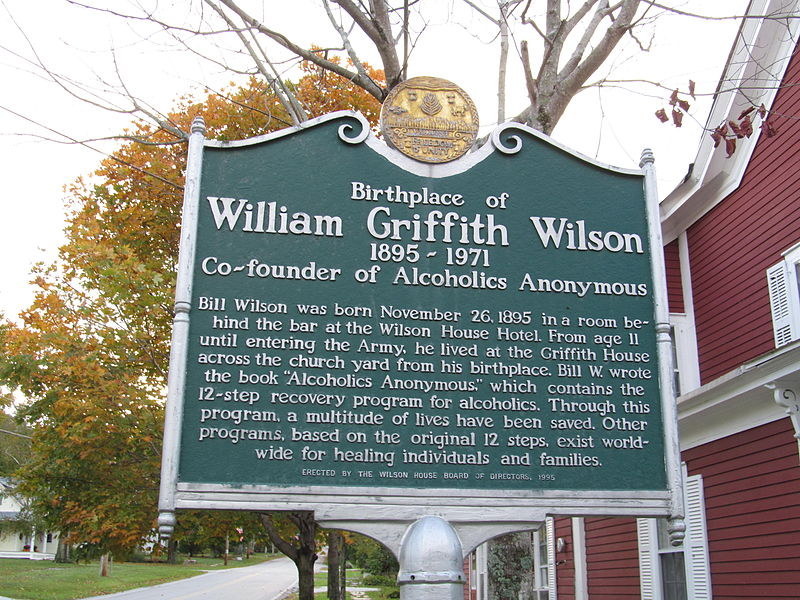Ulysses S. Grant

Joseph McCarthy
View this video on YouTube
Joseph McCarthy was a United States Senator representing the state of Wisconsin from 1947 until 1957. Before his time in Congress, McCarthy spent a few years in the Marines during World War II in active duty. As a United States Senator, he ignited the Red Scare of the 1950s by stirring up fears of communist infiltration in the United States. McCarthy's Wheeling speech in 1950 claimed that communists who favored the Soviet Union had infiltrated the federal government. McCarthy's anti-communist talks and other organizations such as the House Un-American Activities Committee led to the passage of several laws outlawing communism in the United States. Eventually, Americans got over the Red Scare craze and turned on McCarthy who had become the face of the prosecutions against accused communists. McCarthy had been a pretty heavy drinker up to this point but when his support starts to turn against him and he is the one being questioned, his alcoholism became out of control. People close to McCarthy quickly realized his biggest problem was his drinking problem, not his political woes. By 1955, he was in the habit of drinking a fifth of whiskey a day. By this point, his liver was almost gone, and McCarthy did not care. After more political failure, McCarthy only drank more. Drinking ultimately shut down his liver and McCarthy died in May of 1957 at age 48. While McCarthy may not have been a man to aspire to be, he did show how McCarthyism is a dangerous method and should be a warning to future generations.
Herman, Arthur. Joseph McCarthy. New York: The Free Press, 2000.
Mickey Mantle
View this video on YouTube
Mickey Mantle was one of the greatest professional athletes in the history of sports. Mantle played his entire professional career for the New York Yankees winning numerous World Series and MVP's. Mantle was a fan favorite and loved by his team. Mantle's downfall was alcohol. Mantle would frequently show up to games still hung over from the night before. His drinking habits distanced him from his family. In fact, it was a problem for his whole family. Mantle's wife and three sons all became alcoholics. They all underwent treatment and encouraged Mantle to do the same. Mantle finally agreed in January of 1994 when he admitted himself to the Betty Ford Center in California. Whether athletes deserve a lot of attention or not does not matter, because athletes do receive a lot of attention especially from the youth. Mantle encouraged young people to learn from his mistakes and realize that without alcohol his life would have been so much better.
Mantle, Mickey. The Mick. Garden City, New York: Doubleday & Company, Inc., 1985.
Ernest Hemingway
View this video on YouTube
Ernest Hemingway is considered one of the best authors and journalists in American history. He is part of a generation that he made popular called the "Lost Generation." Hemingway won the Nobel Prize in Literature in 1954 for his novel The Old Man and the Sea. Hemingway was also an icon of masculinity amongst Americans due to his typically masculine main characters in his novels. Born in 1899, Hemingway was a product of the generation of manly men President Theodore Roosevelt wanted to enable. From an early age, Hemingway learned to use a gun, was an avid fisherman, participated in athletics, and was keen to fighting. On the other hand, Hemingway also learned how to drink in his high school years. Hemingway left the United States in 1918 to serve the Red Cross in World War I where he was wounded on the front line. It was during the war that he got the inspiration for his war novels such as The Sun Also Rises and Farewell to Arms. After his time in World War I, Hemingway began to work as a journalist and a novelist. His work as a journalist sent him to cover news mainly in the United States, Cuba, and Spain. Until the day he died, Hemingway was a heavy drinker. Hemingway's favorite activities (fishing hunting, writing, wars, and bar fights) enabled his addiction as a drinker. Hemingway was a frequent patron in bars especially during his time living in the Florida Keys and Cuba. Hemingway was so well renowned for his drinking in Cuba that an oversized daiquiris became known as a "Hemingway Daiquiri." Hemingway's drinking problem mixed with an apparent genetic mental disorder led to Hemingway's suicide on July 2, 1961.
Machlin, Milt. The Private Hell of Ernest Hemingway. New York: Paperback Library, Inc., 1962.
Betty Ford
View this video on YouTube
Betty Ford is usually remembered as the wife of President Gerald Ford. Individually, Betty Ford's legacy lives on with the Betty Ford Center, which is a rehab facility in California. Betty Ford was also a big proponent of the Equal Rights Amendment promoting equal pay for women. Ford was very involved with raising money and awareness about breast cancer. Her alcohol problem really began when Gerald Ford was working as a congressman when she was alone with their children most of the time. She began mixing painkillers and alcohol in 1964. The rest of the family either did not notice or tried to pretend that she was okay. Ford tried to quit when her husband became Vice President and eventually President, but she could not. When Gerald Ford left office, Betty and Gerald moved to Rancho Mirage, California. Gerald remained busy with fundraisers, lectures, etc. leaving Betty with a lot of time to herself. This gave birth to Betty's worst stint as an alcoholic and drug addict. It all came to a head when she went to the Soviet Union to narrate a performance. She was slurring her words and hardly awake during the performance. Instead of letting her spiral out of control, her children stepped in and eventually Gerald did too. After a few interventions with her family, Betty checked herself into Long Beach Naval Hospital's Alcohol and Drug Rehabilitation Service in 1978. She admitted to being an alcoholic after two weeks of being too ashamed to admit it, and then two weeks after that, she was released. After her rehab, Betty got involved with the Eisenhower Medical Center to create the Betty Ford Center. The Betty Ford Center is the rehab part of the complex that is used half for males and half for females. Betty Ford helped encourage women that they should not be ashamed to admit to alcoholism when they have a problem.
Greene, John Robert. Betty Ford: Candor and Courage in the White House. Lawrence, Kansas: University Press of Kansas, 2004.
Johnny Cash
View this video on YouTube
Johnny Cash revolutionized the world of country music with his new style that embraced rock and roll, blues, and folk music. Johnny Cash was an example of the “American Dream” to a lot of Americans from the outside looking in. Cash was born to a poor farming family in Arkansas during the Great Depression and worked his way to fame and wealth in the music business. In 1956, Cash came out with “Folsom Prison Blues” and “I Walk the Line.” These two songs sent Cash to stardom in the country music scene. The fame also sent him into a whirlwind of alcohol and drugs. Cash took on the image of an outlaw in his music and in his personal life. He was an icon for the counterculture movement that embraced the heavy drug and alcohol use. Cash was frequently drunk and on drugs off the stage and on. Cash was arrested in 1965 on a plane for possession of narcotics. Cash’s problems with alcoholism, drugs, and other women led to his divorce with his first wife, Vivian Liberto in 1966. Instead of being a life changing experience, Cash did not get rid of his habits. Instead, his problems with alcohol and pills got worse. In March of 1966, Cash had a show cancelled in Toronto, because he walked out onto the stage drunk, strung out on bills, and barefoot. The management decided to stop the show before it ever started. Cash finally went to rehab for his addictions by the request of June Carter. He went off drugs and quit drinking for a few months after he married June Carter in 1968 but went back to them until his son was born. After his son was born, Cash stopped drinking and using for six or seven years. He picked up his habits again secretively after these years until he entered the Betty Ford Center in December of 1983. Finally, Johnny Cash cleaned himself up after this rehabilitation stint until he died in 2003.
Streissguth, Michael. Johnny Cash: The Biography. United States: Da Capo Press, 2006.
Buzz Aldrin
View this video on YouTube
Buzz Aldrin was one of the first two human beings to step onto the moon. In 1969, Aldrin and Neil Armstrong made history in their successful round trip to the moon and back. This instantly immortalized Aldrin as a national hero and icon. The fame and accomplishment of walking on the moon is something that no one can really understand without doing it for first hand. For Aldrin, it didn not seem as if anything could ever come close to that experience. Soon after landing, Aldrin picked up his old drinking habit. Aldrin was an alcoholic like both of his parents. It took Adrin over a decade to rid himself of alcohol, but he is not drinking anymore.
Aldrin, Buzz. Magnificent Desolation: The Long Journey Home from the Moon. New York: Three Rivers Press, 2009.
Hunter S. Thompson
View this video on YouTube
Hunter S. Thompson is most likely the least known person on this list. However, Thompson was a man that comes once in a lifetime and revolutionizes his profession. Thompson was a journalist who created his own form of journalism called “gonzo journalism.” Thompson became famous with his publication of a book titled Hell’s Angles. The book is about his time with the San Francisco Bay Area biker gang called Hell’s Angels. Thompson worked his way into spending much time with the gang drinking and taking drugs. This method of placing himself in the story is what gonzo journalism was all about. Thompson got his in with the biker gang by going to them and intermingling with them. Thompson’s ability to consume large amounts alcohol and his LSD usage proves to the gang that he is not there in the same way as the cops. Thompson’s gonzo journalism highlighted the counterculture movement that was going on in the United States during the 1960s and 1970s that embraced the use of drugs and alcohol. Thompson’s goal was to make his work appear to be fiction whether they were fact or fiction. He believed that the style of no revisions to his work would further engage the reader in his story. Most of Thompson’s journalistic career was done under the influence of alcohol and drugs. Later in Thompson’s life when he had made a name for himself and was doing speeches, he would show up hours late and so drunk he could hardly speak.
“I hate to advocate drugs, alcohol, violence, or insanity to anyone, but they’ve always worked for me.” -Hunter S. Thompson
McKeen, William. Hunter S. Thompson. Boston: Twayne Publishers, 1991.
F. Scott Fitzgerald

Bill Wilson









